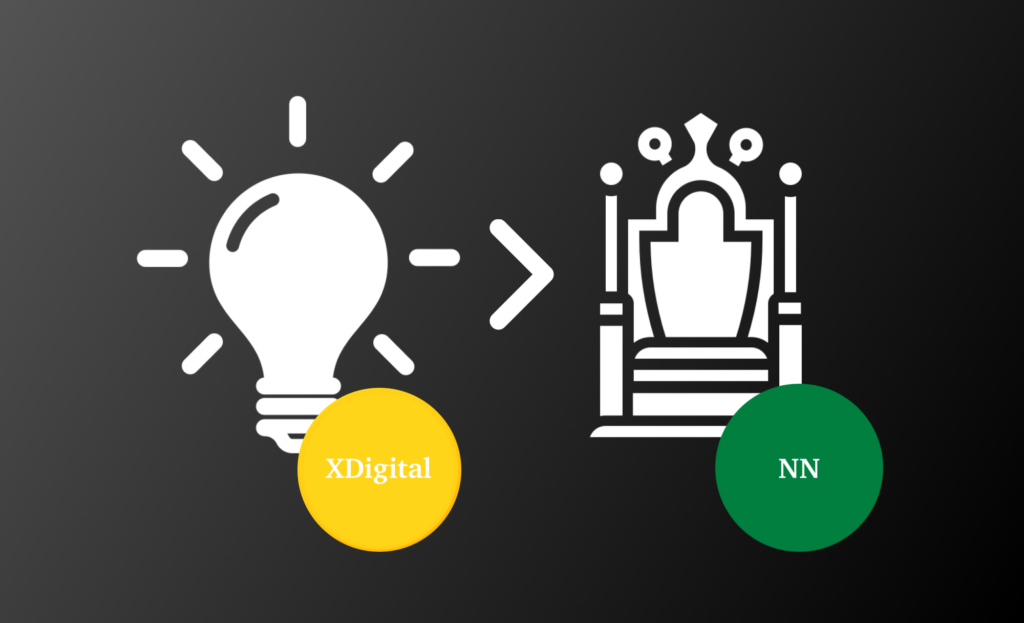
The truth about mythological founders, or the reality of the Needed Network (NN)
This post is about how one degree of freedom networks overwhelmingly determine outcomes for founders. If you haven’t already, read this essay about the influence of cities from Paul Graham. It is required reading on the subject.
Parallel to the subject post by Balaji, the “East Coast” ideology has permeated the five large technology companies on the West Coast that have entered their institutional era. These technology companies have the closest proximity network to the world of start-ups and ways for an unknown founder to gain start-up capital. As Marc Andreessen said from a non-Ivy League perspective, even those innovators who have built something that people want need to punch into the warm introduction network somehow. Tactically, if starting from scratch, Marc advised getting into one of the big technology companies and working your way up. Let’s call this the Needed Network. (NN)
Below is a grounding connection between the power of institutional ideology0 and the NN of technology founders.
With the exception of Vitalik Buterin, the 11 founders mentioned in the subject post had the NN of an Ivy League1 institution on their Wiki.
The truth is this:
Social proof from acceptance and association with these institutions has been the dominant way to enter the NN of a technology founder.
The principal components of this reality are being reconstructed to increase the global NN through technology companies and XDigital Communities. For the purposes of talking about this space, XDigital Communities encompass the identity optional pseudonyms used on Twitter, Reddit, and Discord through the spectrum to decentralized network states.
NNs are expanding from Harvard to Pinterest to XDigital Communities
Smart people make things. And Sahil Lavingia is agreeably so good that he can’t be ignored. However, these two maxims alone are not enough to become a mythological technology founder.
As a quintessential maverick founder, Sahil stands in contrast to the subject post’s selection of people who may have otherwise become professors. Sahil famously built the first iteration of Gumroad in a weekend at the age of 19. He was accepted and dropped out of the University of Southern California, a non-Ivy League institution. What is interesting about Sahil is that he gained his NN through acceptance and admittance into Pinterest, a new West Coast technology company in 2011, before he got Gumroad off the ground.
It was through Pinterest that Sahil gained the NN, including the mentors and credibility, to secure funding for Gumroad’s success in the future.
As Ivy League institutions compete with one another on lowest % acceptance rate, a new pool of people with the aptitude to be successful founders are gaining into NNs through technology companies and XDigital Communities.
This is not to say that the Ivy League is going away. Harvard is not going away. Ivies will remain stalwart, numerically similar and only relatively smaller to the growing pie of NNs. As the change is net new growth of NNs, or the expanding scope.
Even as of March 2021, 54% of a16z portfolio companies had made plans to embrace the competitive advantages offered by the remote first model. Along with the rise of asynchronous working, these phenomenon will accelerate into more globally distributed Sahils, more high aptitude founders admitted to the NN slice technology companies offer, in real volume. And this slice was already swelling at a non-linear rate, primarily as a function of software eating the world over the last 20 years.
Now the question is this:
How and how quickly will XDigital Communities become the majority of the NN pie?
0 This post covers a sub-section of educational institutions within the larger situation of institutional ideology. Trust in institutions is shrinking quickly. And for good reason. These institutions were simply designed and entrenched at times with less technology and information available while also being varyingly recalcitrant to innovation. Lagging problems have split into more and more avoidable issues such as recent voting right regulations in legal contention, which could be all together bypassed by blockchain based applications usable via a public hub or internet connection.
1 Ivy League is defined for this post as the Top 20 lowest acceptance rate U.S. schools.
Larry Page, Peter Thiel, Daphne Koller (Stanford)
Andrew Ng, Diane Greene (MIT)
Michael Moritz (Penn)
Paul Graham, Bill Gates, Mark Zuckerberg (Harvard)
Jeff Bezos (Princeton)

One reply on “Founding vs Inheriting”
This is interesting to understand how the world will accept the rise of founders and people who generally don’t come from wealthy institutions and families.